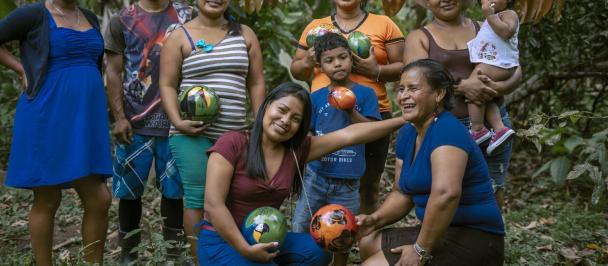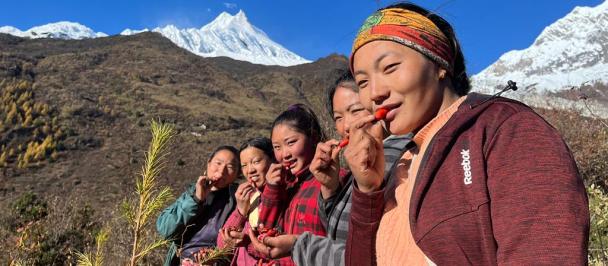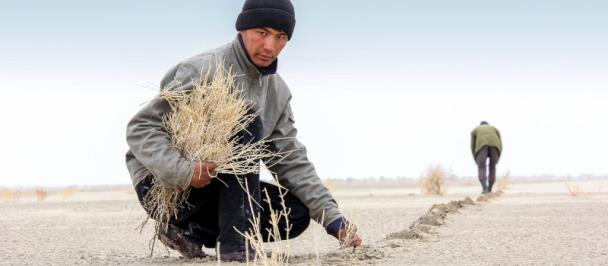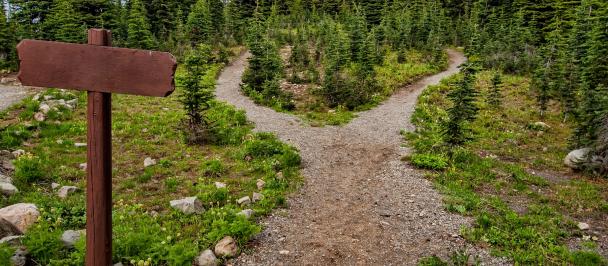On this World Water Day 2019, with its theme 'Leaving No One Behind', policymakers focused on achieving Sustainable Development Goal (SDG) 6 - Clean Water for All. That means clean water for everyone, including historically marginalized groups such as indigenous peoples. It’s a monumental goal.
More than 800 million people—many of them members of indigenous or traditional communities—live without basic water and sanitation. The task of traveling long distances to fetch water that may or may not be safe to drink frequently falls on women and children.
Despite the UN General Assembly’s adoption in 2010 of Human Rights to Water and its 2007 United Nations Declaration on the Rights of Indigenous Peoples, indigenous communities remain disproportionately affected by water insecurity.
The world’s estimated 370 million to 500 million indigenous peoples suffer frequent water rights violations. They have systematically lost local control of ancestral lands and water due to encroachment, pollution, and excessive extraction, and they are frequently excluded from decision-making about water.
Climate change, including intensifying droughts and floods, exacerbates the situation.
At the same time, indigenous and traditional peoples have emerged as powerful advocates and agents for change by promoting sustainable water management, based on indigenous and traditional knowledge and practice.
The Equator Initiative, a UNDP-based partnership working to recognize and advance local sustainable development, celebrates the catalytic role local leaders play in implementing nature-based solutions for water security.
Winners of the prestigious biennial Equator Prize include local organizations working to address important issues in water security, including ecosystem protection and reintroduction of sustainable water governance, and advocating for local control of land and water resources. A few examples:
- Across 88 villages in the Kisoro District of Uganda, home to the Batwa indigenous group, downstream water insecurity is directly linked to upstream deforestation. Less than two percent of communities have safe drinking water, requiring women and children to walk as far as 25 kilometres to fetch water that often turns out to be unsafe. In response, the Batwa group, recipient of the UNDP Equator Prize 2014, engaged downstream communities in reclaiming an active role in natural resource management. They developed local sustainable watershed management plans based on indigenous and traditional knowledge. By advocating for local management of water resources and installing a series of rainwater harvesting devices, the community was able to bring clean water to more than 6,000 local families.
- In the remote mountains of Tajikistan, less than half of residents have safe water because of failing infrastructure, melting snow, and deteriorating water governance structures. In response, WUA “Ob Umed” (Water Users’ Association Ob Umed), also a recipient of UNDP’s Equator Prize 2014, revived traditional, nature-based water governance structures, responsible for watershed-wide monitoring and democratization of water distribution. When watershed control returned to the local community, residents got more irrigation water and safe drinking water.
In both instances, effective indigenous governance and reliance on traditional knowledge was accompanied by a focus on protecting natural ecosystems, especially forests, which are the backbone of water security. One recent study found that more than 3,200 cities around the world could improve water security by 10 percent or more simply by improving forest management and agricultural practices.
To learn more about the critical role played by indigenous peoples in water security, please explore the work of Equator Prize winners for water security in a photo essay in honor of World Water Day 2019. Find out more about how ecosystem protection and restoration underpins global water security by visiting UNDP’s Nature for Water website.
To truly leave no one behind, let’s recommit on World Water Day 2019 to bringing indigenous and traditional peoples back to where they belong—at the centre of managing, planning for, and protecting vital water resources and the ecosystems that support them.
To read more about the Equator Initiative, click here.

 Locations
Locations



